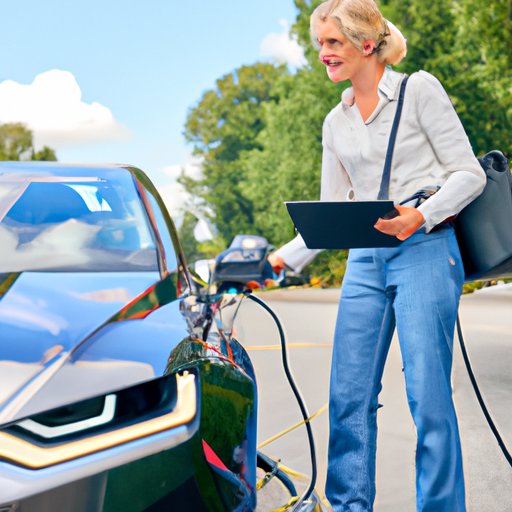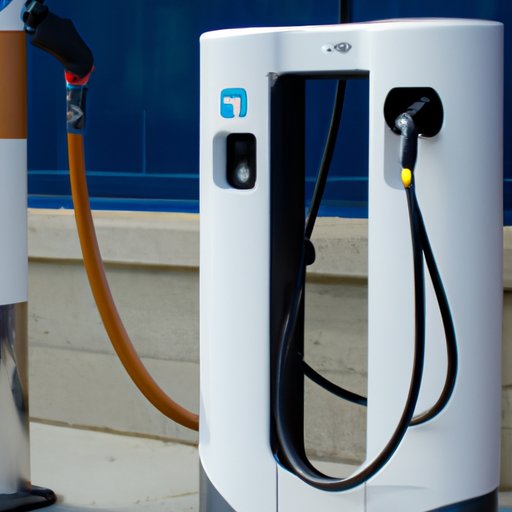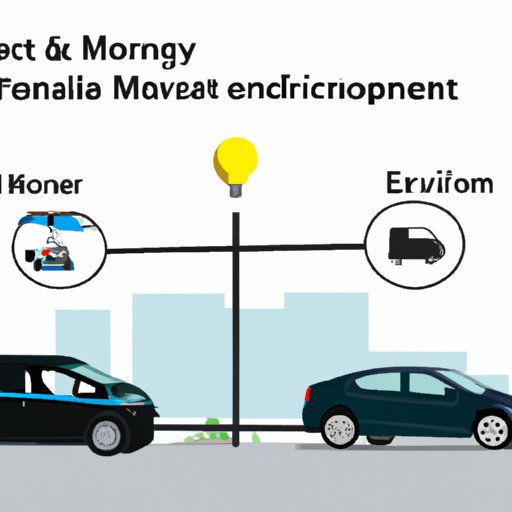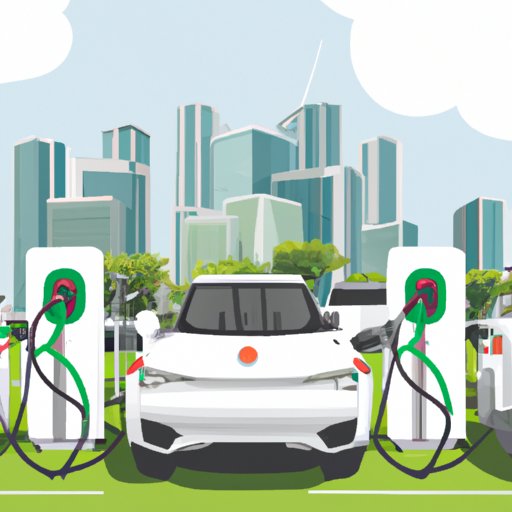Introduction
An electric vehicle (EV) is a vehicle that is powered by electricity. This type of vehicle has become increasingly popular due to its potential for reducing emissions and providing cost savings. However, there are many factors to consider when deciding whether or not an EV is a good investment. In this article, we will explore the pros and cons of investing in an EV, evaluate the financial benefits, examine the environmental impact, assess the availability and cost of charging stations, investigate the resale value, and compare EVs to other options in the automotive market.
Evaluating the Financial Benefits of Investing in an EV
One of the primary considerations when investing in an EV is the financial benefits that it can provide. One of the most significant financial benefits of owning an EV is the cost savings from fuel efficiency. According to the U.S. Department of Energy, EVs are three times more efficient than gasoline-powered cars, which means that they require less energy to travel the same distance. This translates into lower fuel costs over time. Additionally, many states offer tax credits and incentives for purchasing an EV, making them even more affordable.
Another financial benefit of owning an EV is the lower maintenance costs. Since EVs do not require oil changes or tune-ups, they are generally much cheaper to maintain than gasoline-powered cars. Additionally, since EVs have fewer moving parts than gasoline-powered cars, there is a reduced risk of mechanical issues and repairs.

Examining the Impact of Electric Vehicles on the Environment
In addition to the financial benefits, one of the primary reasons that people choose to invest in an EV is the positive impact that it can have on the environment. EVs are significantly more efficient than gasoline-powered cars and emit far less carbon dioxide (CO2). According to the International Council on Clean Transportation, EVs can reduce CO2 emissions by up to 60% compared to gasoline-powered cars. Additionally, EVs can be powered by renewable energy sources, such as solar or wind power, further reducing their environmental impact.

Assessing the Availability and Cost of Charging Stations for Electric Vehicles
When investing in an EV, it is important to consider the availability and cost of charging stations. Most major cities have public charging stations available, but the locations and availability of these stations may vary. Additionally, the cost of charging at these public stations can range from free to several dollars per hour, depending on the location and type of station. It is also possible to install a charging station at home, but this may require an initial investment.
Investigating the Resale Value of Electric Vehicles
The resale value of an EV is another factor to consider when deciding whether or not to invest in one. Generally speaking, EVs tend to have higher resale values than gasoline-powered cars. This is mainly due to the fact that the battery life of an EV is typically much longer than that of a gasoline-powered car. Additionally, the cost of replacing an EV battery is usually much lower than the cost of replacing a gasoline engine.

Comparing Electric Vehicle Investment to Other Options in the Automotive Market
It is also important to compare the cost and performance of an EV to that of other options in the automotive market. Generally speaking, EVs tend to be more expensive than gasoline-powered cars. However, the cost savings from fuel efficiency and lower maintenance costs can offset some of this difference. Additionally, EVs tend to have better acceleration and handling than gasoline-powered cars, although this may vary depending on the model.
Conclusion
Investing in an electric vehicle can be a great way to save money on fuel costs and reduce your environmental impact. There are many advantages to owning an EV, including cost savings, potential tax credits and incentives, lower maintenance costs, reduced carbon emissions, and renewable energy sources. Additionally, EVs tend to have higher resale values than gasoline-powered cars and may offer better performance. However, it is important to consider the availability and cost of charging stations, as well as the initial investment required to purchase an EV. Ultimately, whether or not an EV is a good investment depends on your individual needs and preferences.
(Note: Is this article not meeting your expectations? Do you have knowledge or insights to share? Unlock new opportunities and expand your reach by joining our authors team. Click Registration to join us and share your expertise with our readers.)
